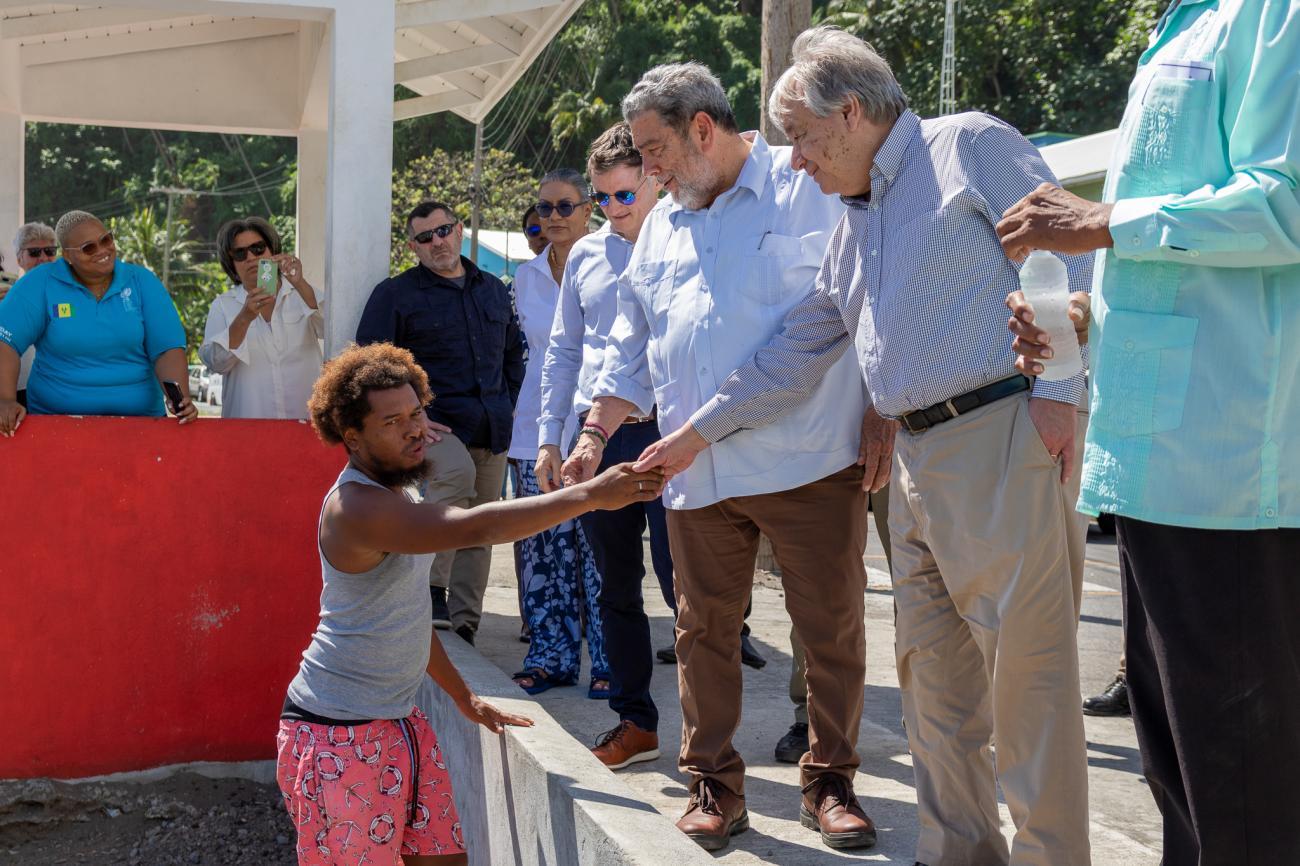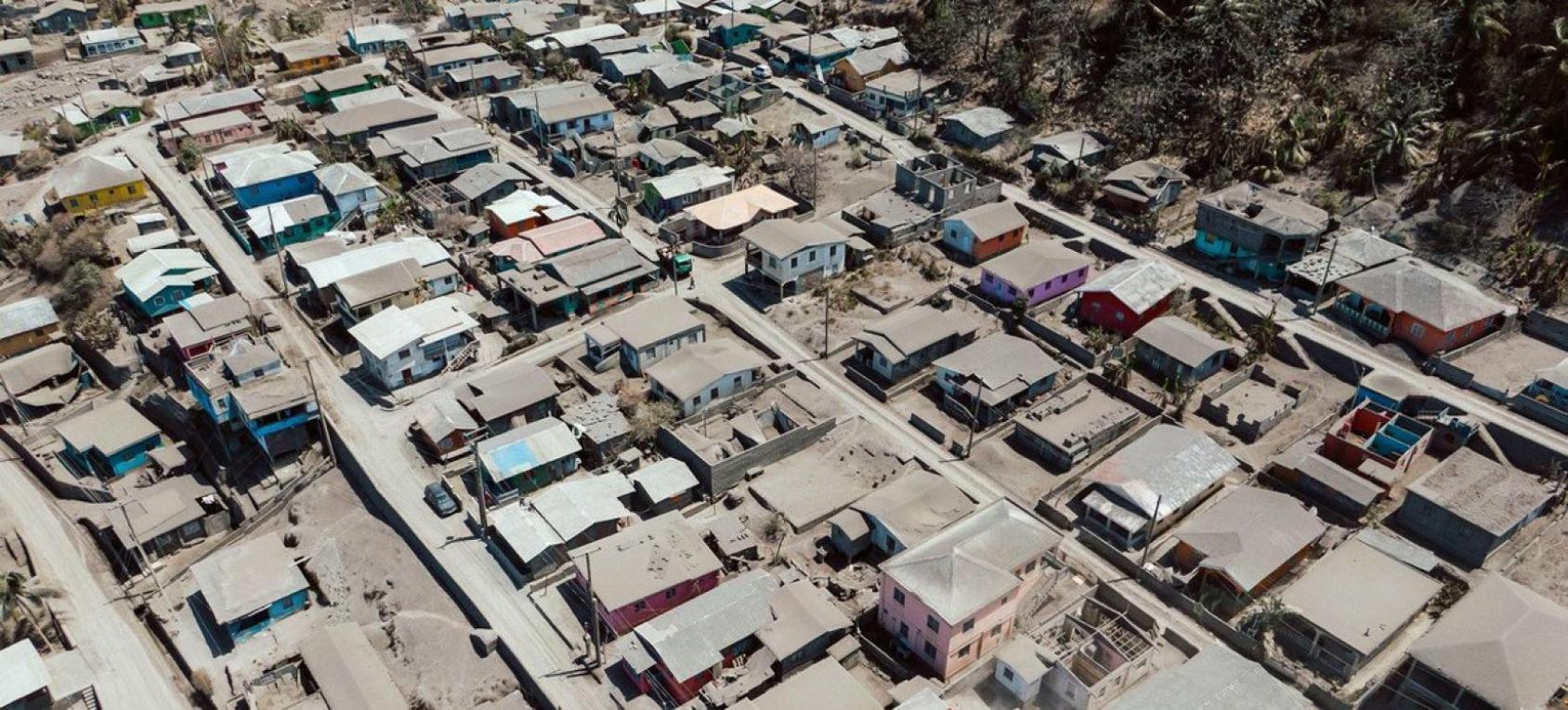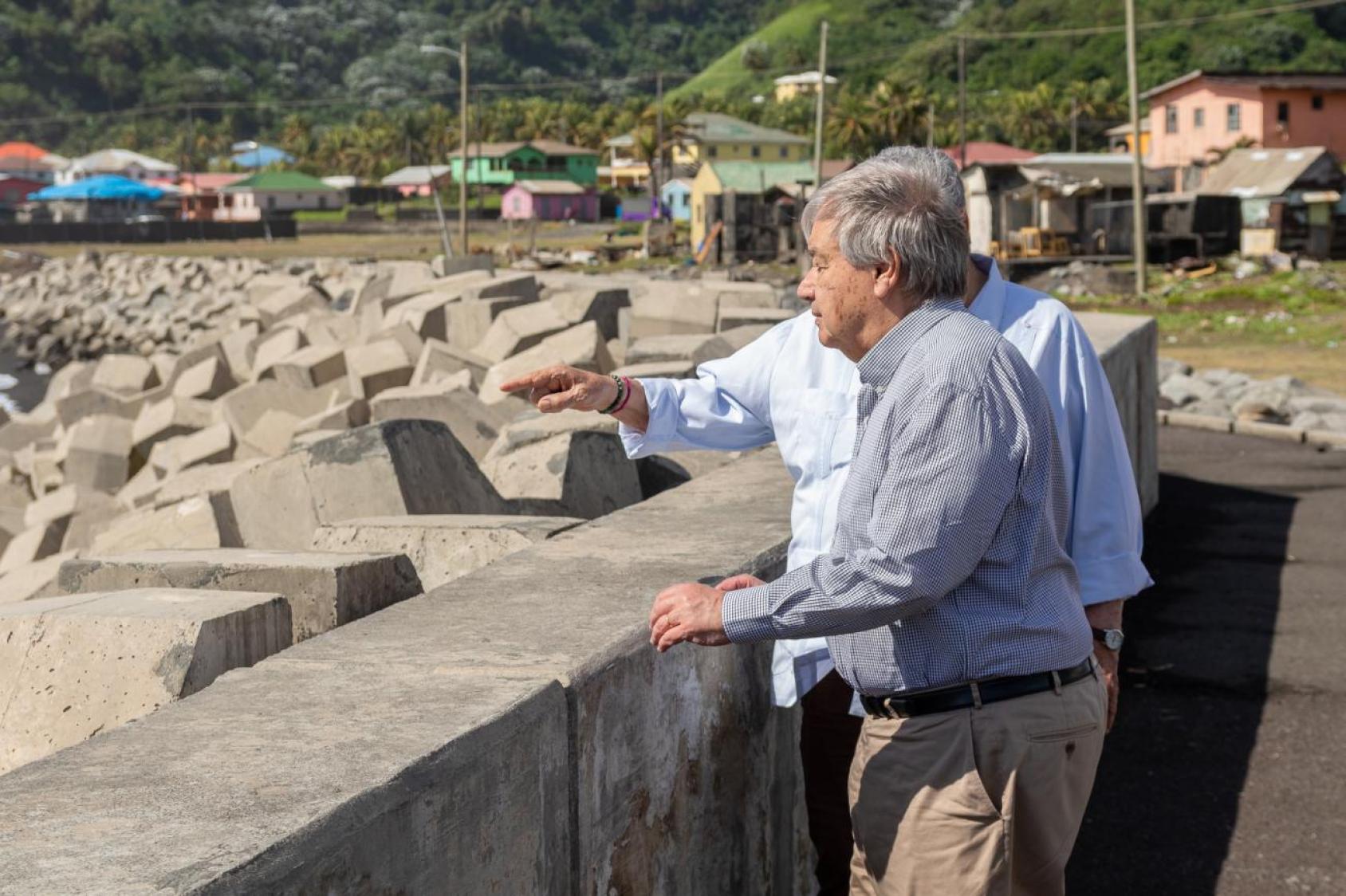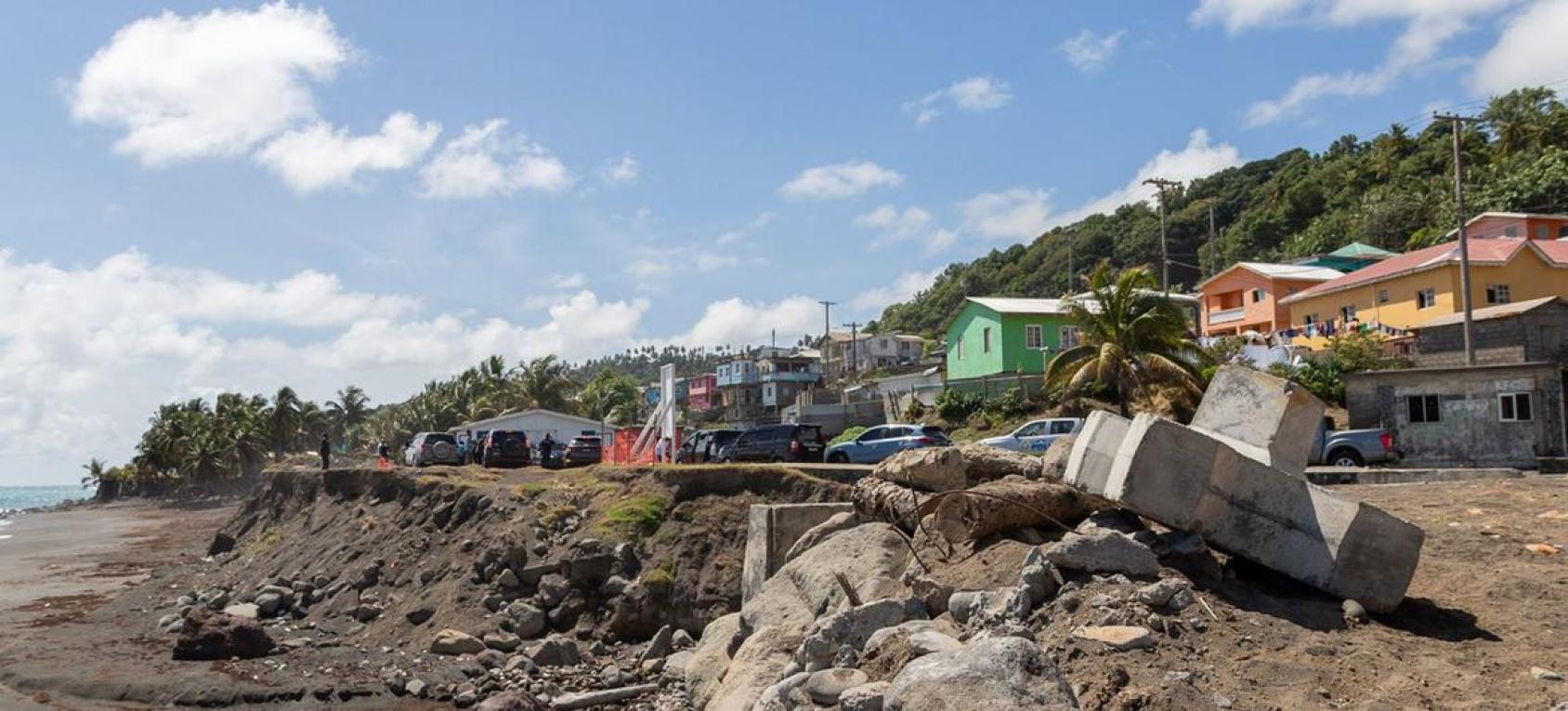UN Chief Commends Resilience of St. Vincent and the Grenadines During Post-Eruption Visit

During a recent visit to St. Vincent and the Grenadines, UN Secretary-General, António Guterres, expressed admiration for the island nation's "impressive" recovery from the devastating eruption of the La Soufrière volcano in 2021. “The solidarity of the people, the courage of the people, the determination of the people - that is something that is an example for all of us, everywhere,” he said “And once again, I want to express my enormous appreciation for what was done in the immediate response and in the reconstruction that followed.”
The eruption caused widespread damage and forced some 20,000 people, roughly a fifth of the population, to evacuate immediately. The swift response of the UN Country Team and partners alike for the immediate respond and the holistic recovery efforts, and the enduring commitment of the people, have driven the island's remarkable progress.

The Secretary-General's visit, part of a summit of the Community of Latin American and Caribbean States, returned highlighted the ongoing challenges facing the Government and people of St. Vincent and the Grenadines, emphasizing both the country's vulnerability to climate change and the continued need for international support in the form of “climate justice.”
“The people of the small island developing states are on the frontlines of climate change,” Guterres stressed. While not responsible for global warming, these nations bear the brunt of its consequences. His call for “swiftly allocated financing” and streamlined access to funding reflects the urgency of the crisis.

The UN's commitment to helping St. Vincent and the Grenadines weather this storm is longstanding. In the immediate aftermath of the eruption in April 2021, the UN Country Team, led by the Resident Coordinator Didier Trebucq, mobilized rapidly to support the government’s humanitarian response. Initial response efforts focused on essentials like clean water, sanitation, shelter, and food security for thousands of displaced people. It was a massive undertaking, tackled with determination by UN agencies on the ground in partnership with local organizations.
"Disaster response cannot be separated from long-term development planning," explained Trebucq, reflecting on the experience. This holistic approach laid the foundation for the island's recovery, addressing both immediate needs and future preparedness.

The three years since the eruption have been a journey toward resilience. Homes have been rebuilt, schools reopened, and livelihoods are slowly being restored. But as Trebucq emphasizes, the specific challenges facing small island developing states make the road to recovery both complex and ongoing. Issues like economic vulnerability, limited resources, and exposure to repeated climate-related disasters shape the nation's rebuilding efforts.
With an eye to the future, the UN is helping St. Vincent and the Grenadines create stronger social protection systems and prepare for a future defined by the growing threat of climate change. Secretary-General Guterres' visit serves as a reminder of the global commitment to vulnerable nations like St. Vincent and the Grenadines. While the country has made impressive strides, the international community must continue to provide the support necessary to build a truly resilient, sustainable, and secure future against the backdrop of the climate crisis.













